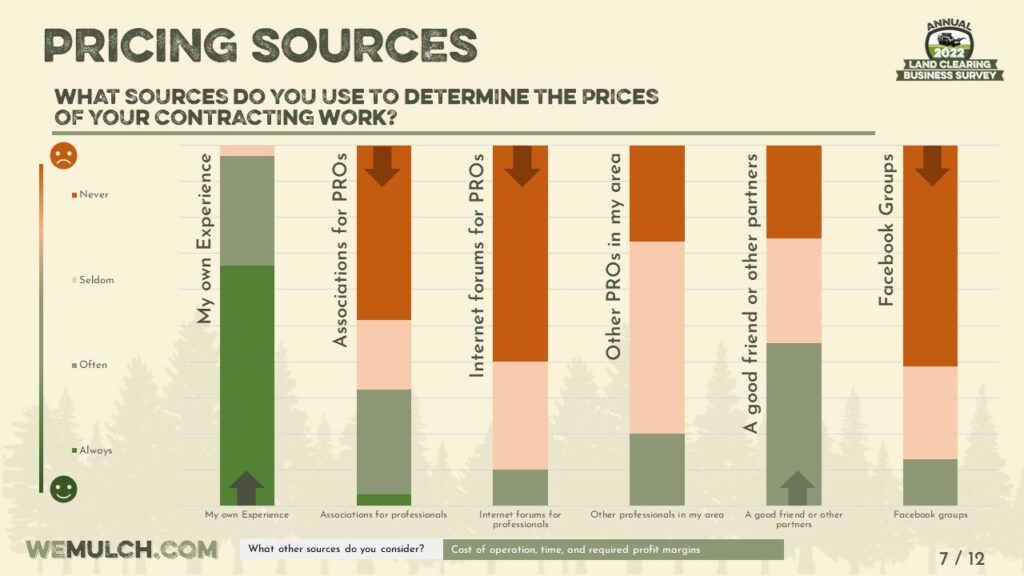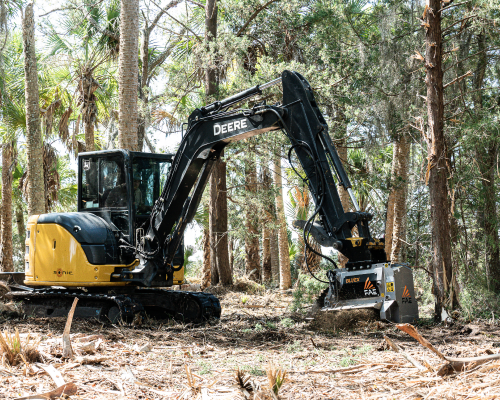Starting a land clearing business can be a lucrative venture for those with the right skills, equipment, and determination. As the demand for new developments, farmland, and cleared landscapes grows, so does the need for professionals who can prepare land efficiently and effectively. In this guide, we’ll break down the essential steps to start a land-clearing business and provide insights into the equipment, legal considerations, pricing, and strategies to set your business up for success. If you’re considering a career in the land clearing industry or want to launch a land clearing company, this article is a must-read.
1. What is a Land Clearing Business?
A land clearing business specializes in removing trees, brush, rocks, and other obstacles from a piece of land to make it suitable for development, farming, or other uses. A land clearing company may work on both small-scale residential projects and large commercial jobs, depending on the equipment and capabilities they offer. Clearing land involves the use of heavy machinery like excavators, dozers, and skid steers to efficiently remove debris and prepare the land.
2. Why Start a Land Clearing Business?
The demand for land clearing services has been steadily increasing, as more people and businesses look to develop property or manage forestry land. Starting a land clearing business allows you to take advantage of this growing demand, offering essential services for residential and commercial clients alike. If you’re planning to enter this industry, you’ll benefit from the high demand and the opportunity to specialize in certain services, such as forestry clearing or residential lot preparation.
3. What Equipment Do You Need to Clear Land?
For a successful land clearing business, equipment is the foundation. You’ll need an array of heavy machinery, including:
- Excavators and Bulldozers: Essential for large-scale projects, excavators and dozers help clear land by moving large amounts of earth, rocks, and brush.
- Skid-Steer Loaders: Skid steers are versatile and can handle smaller jobs or reach areas that larger equipment can’t access.
- Mulchers and Grinders: Mulching machines are essential for breaking down brush and trees, making it easier to remove debris.
You may also need attachments like cutters and grinders to complete various tasks. Investing in high-quality equipment can save you money on repairs in the long run, but rental options are available for those not ready to purchase a full fleet.
4. Understanding Pricing in the Land Clearing Industry

Pricing your services correctly is crucial. Several factors impact pricing in the land clearing industry, such as the terrain difficulty, equipment costs, the type of vegetation, and the size of the land clearing project. Many contractors charge by the hour or by the acre, depending on the client’s needs. When pricing, don’t forget to consider the wear and tear on your machinery, as well as additional costs like permits and liability insurance.
5. Setting Up Your Business Entity and Obtaining Permits
Before you get your business off the ground, you’ll need to select a business entity and secure the necessary business licenses and permits. Most land clearing companies operate as a sole proprietorship, LLC, or corporation, depending on liability concerns and tax benefits. In addition, specific permits are often required, particularly for larger land clearing projects, as local governments regulate land development to manage environmental impacts.
6. How to Market Your Land Clearing Business
To market your business effectively, consider building a professional website that showcases your services, equipment, and expertise. Search engines are essential to attracting new clients, so ensure that your website is optimized for search with relevant keywords like “land clearing services,” “excavators,” and “heavy equipment.” You may also want to create a presence on local directories and social media platforms, where potential clients can easily find and contact you.
7. Creating a Business Plan for Your Land Clearing Company
A strong business plan includes everything from your goals and objectives to your startup costs, pricing strategy, and target market. Outline your startup costs, including expensive equipment purchases, and forecast your revenue potential. Your plan should also consider the competitors in your area and ways to differentiate your services, such as specializing in forestry land-clearing or providing competitive pricing.
8. Managing Equipment and Machinery Maintenance

Running a land clearing business requires a significant investment in equipment like excavators and bulldozers, which come with maintenance and repair costs. Regular maintenance will help you efficiently complete jobs and prevent costly breakdowns. Don’t forget to track maintenance schedules and set aside funds for potential repairs. A well-maintained fleet can lead to a better experience for clients, as you’ll avoid delays and ensure high-quality service.
9. Hiring and Building a Team for Your Business
While some land clearing businesses start with a small crew or even a single operator, as your business grows, you may want to hire additional help. Consider the skills required, including experience with heavy equipment and understanding of safety protocols. A solid team can support larger projects and allow your business to handle multiple jobs simultaneously.
10. Tips for Growing a Successful Land Clearing Business
Growing a successful land clearing business requires more than just the right equipment; it also involves strategic marketing, excellent customer service, and a commitment to quality. To grow your business, you’ll also need to establish strong client relationships, stay competitive on pricing, and adapt to changes in demand. Networking in industry groups or joining a forum community dedicated to land clearing can help you learn new strategies and stay informed on best practices.
Key Takeaways
- Define Your Services: Decide what types of land clearing projects you want to take on, from residential to commercial, and make sure you have the equipment and team to handle them.
- Invest in Equipment: Quality machinery like excavators, bulldozers, and mulchers is essential to success in the land clearing industry.
- Understand Pricing Factors: Consider costs like terrain, equipment maintenance, and permits when setting your pricing.
- Get Proper Licenses and Permits: Establish a legal entity and obtain any necessary permits before starting work on projects.
- Market Strategically: Create a professional website and engage in local marketing to build a client base.
- Plan for Growth: Build a business plan that includes initial costs, revenue projections, and strategies for expanding your services over time.
With the right preparation, investment in high-quality equipment, and strategic planning, your land clearing business can thrive and meet the growing demand for land clearing services in your area.
